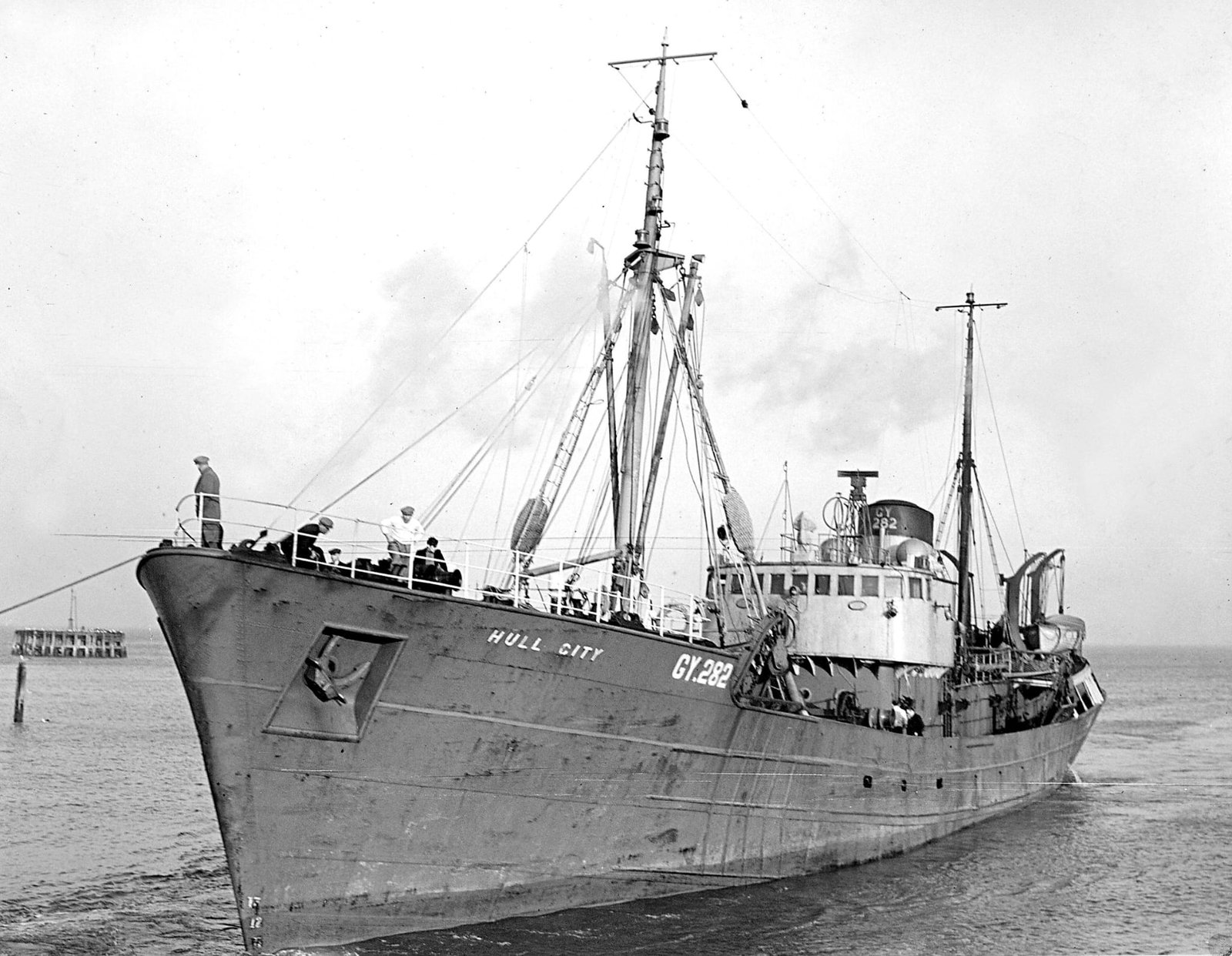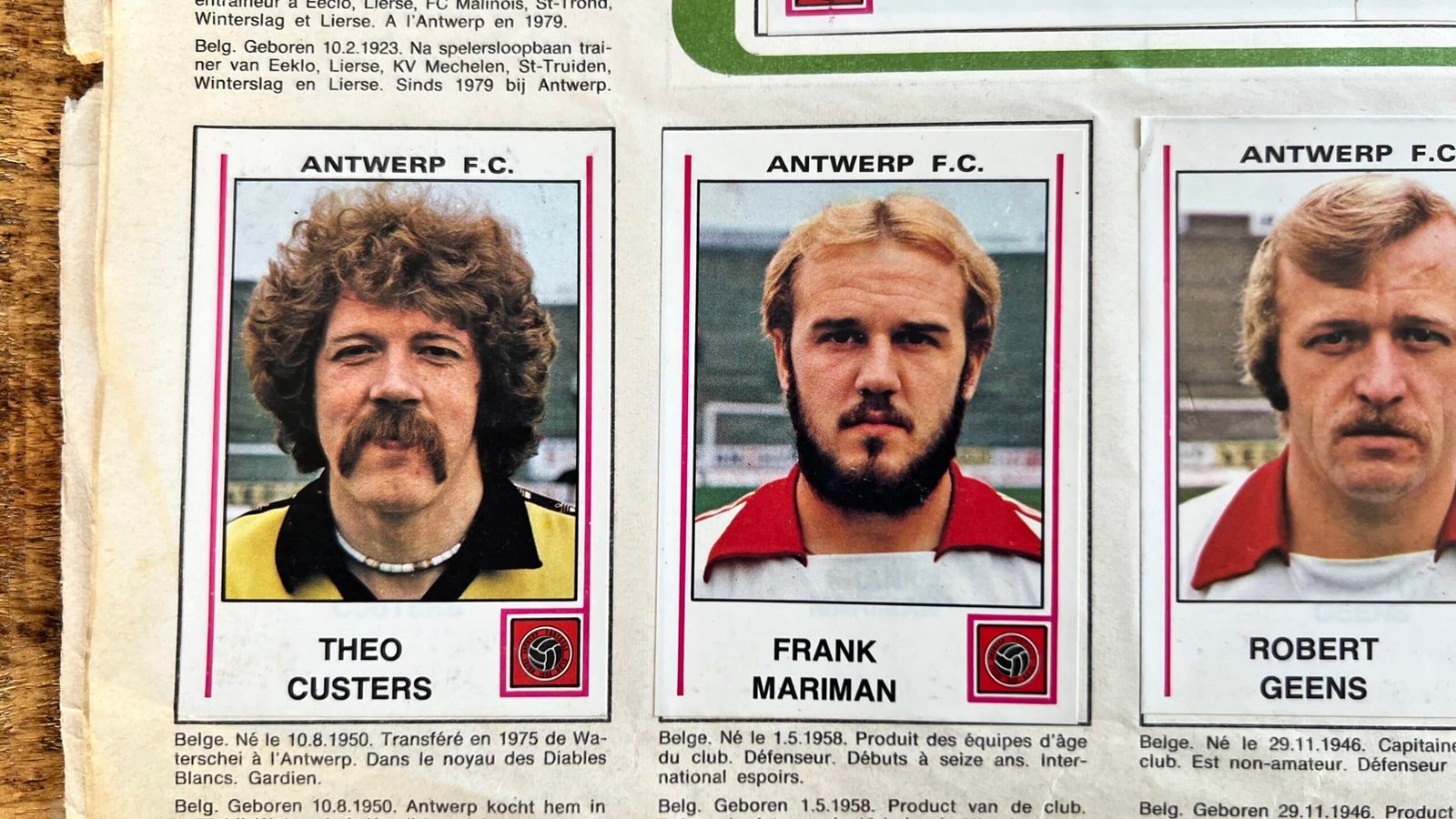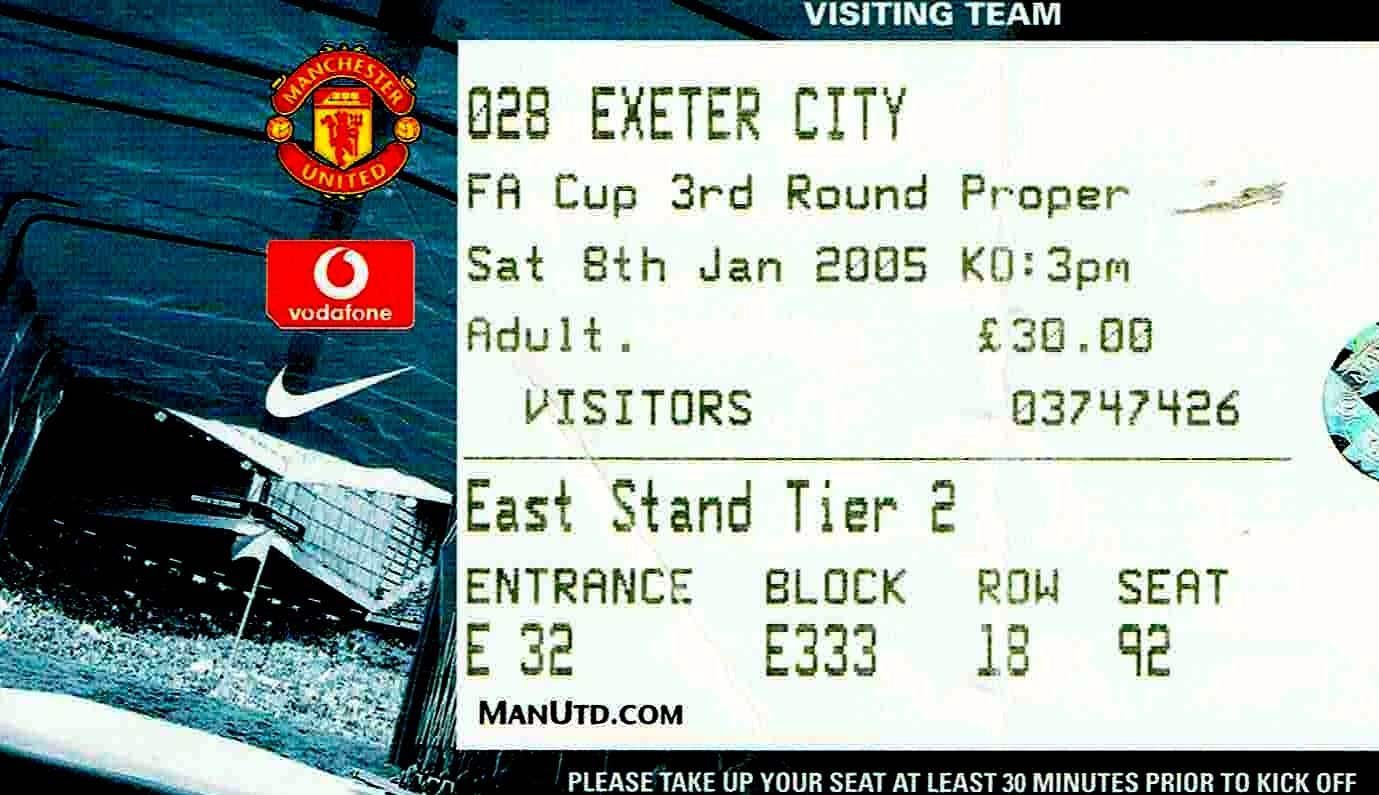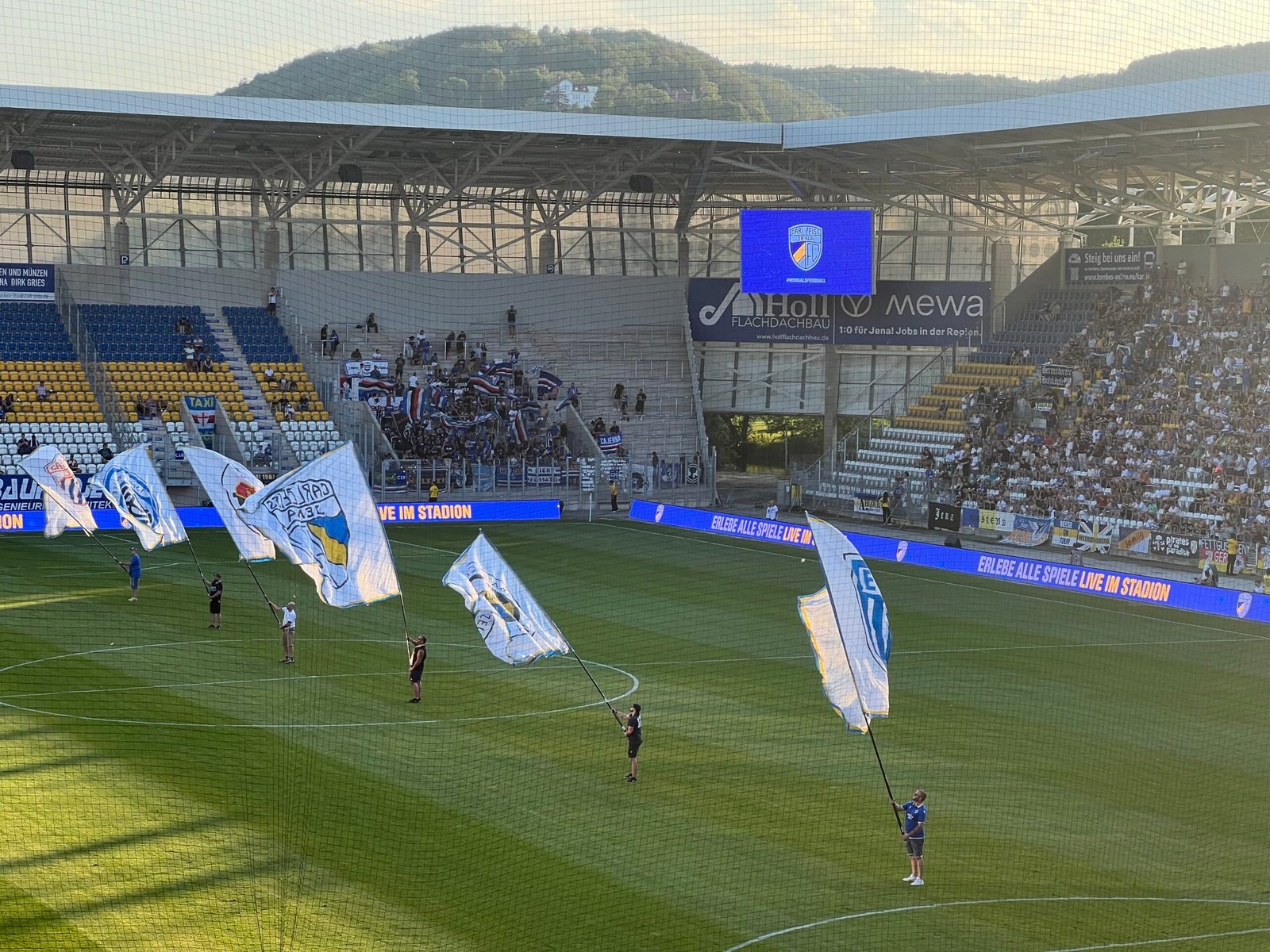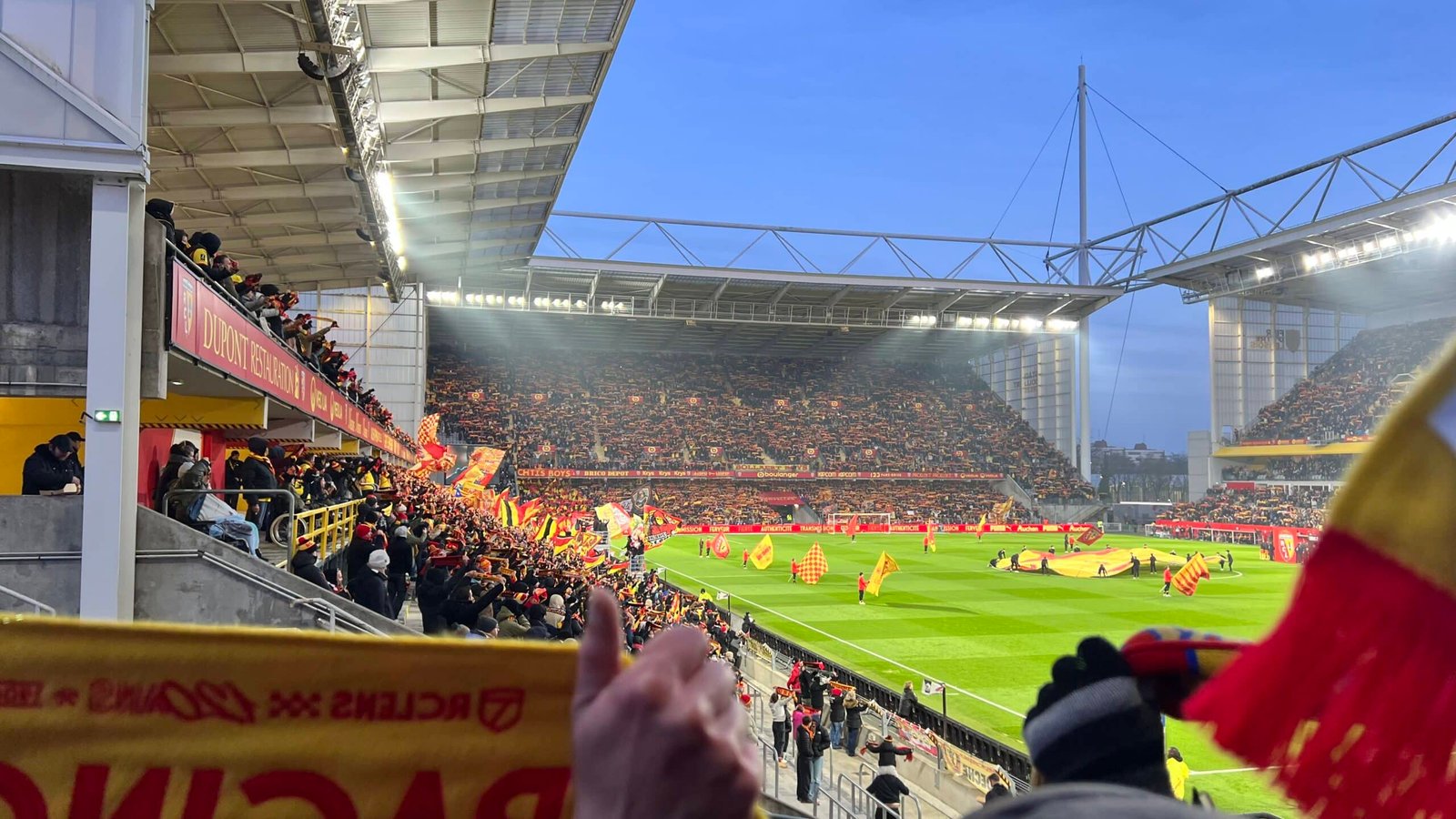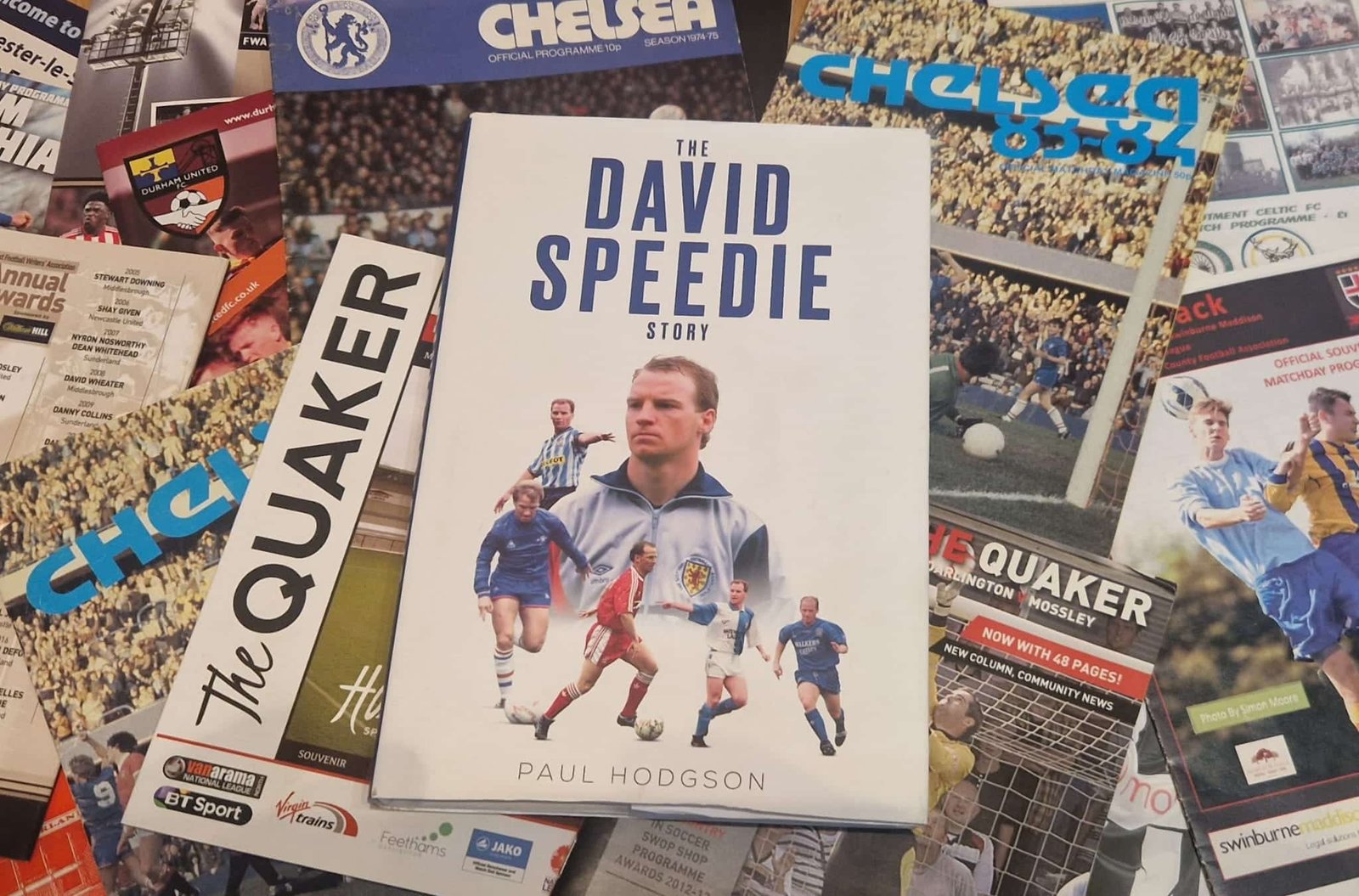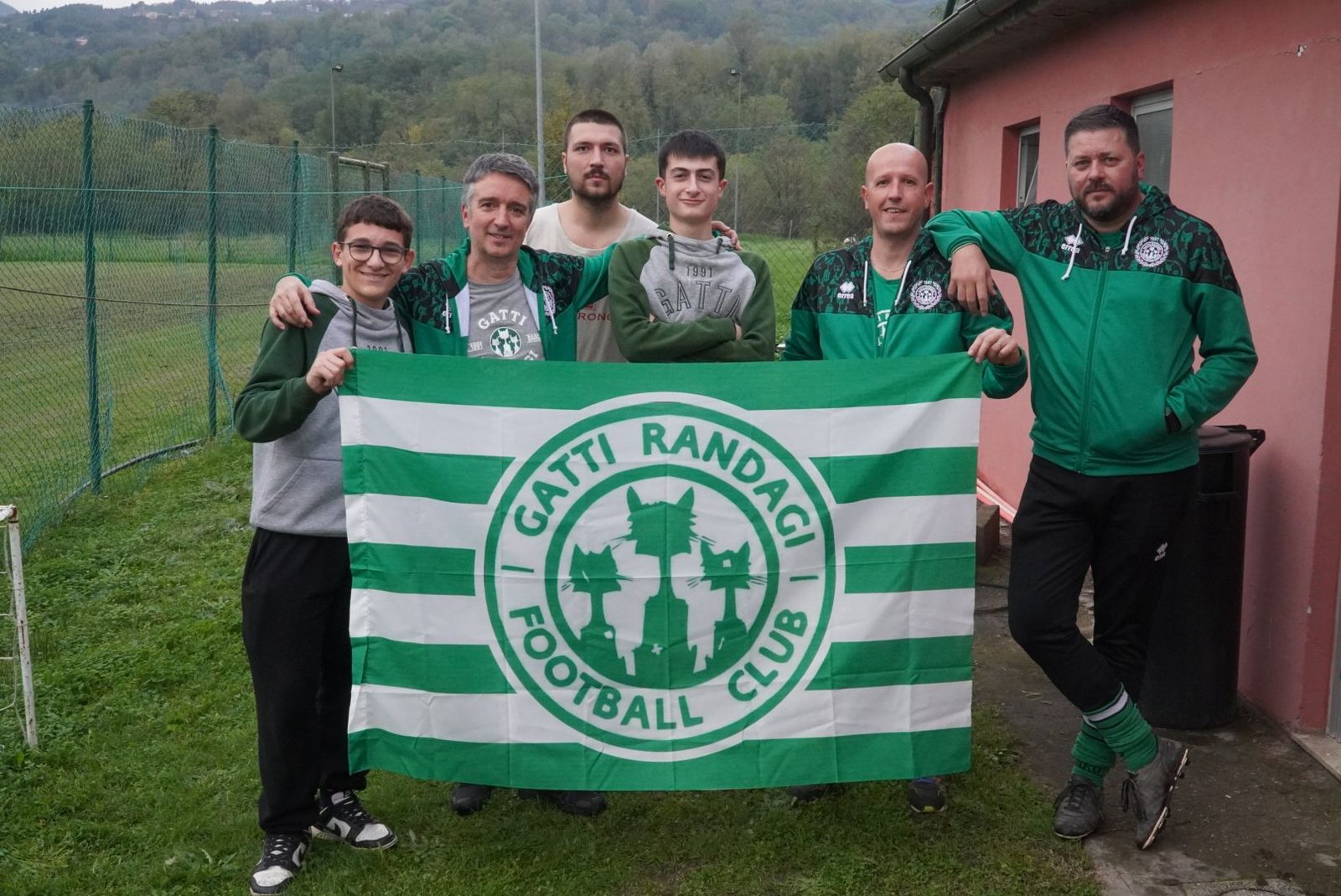Colin Young attends stage play The Sunderland Story, adapted by Nicky Allt in stoppage time
In one of the most dramatic weeks in Sunderland’s long history of dramatic weeks, the ending to The Sunderland Story needed a quick re-write. And so – spoiler alert – Dan Ballard’s devastatingly late play-off winner is included towards the end of the play which opened in front of a delighted audience at the Sunderland Empire last night, Thursday, May 15.
“I had to include it, didn’t I?” said Sunderland Story writer Nicky Allt. “People coming in to see the show would have said, ‘But where’s Dan Ballard’s goal?’ so we had to add it.”
“And the funniest thing, from a theatrical sense, was the way he couldn’t get his shirt off as he celebrated the goal.”
“It was just a fantastic moment and over the two games, he was absolutely fantastic, a man mountain. The manager bringing him back early was a bit of a risk, but it paid off.”
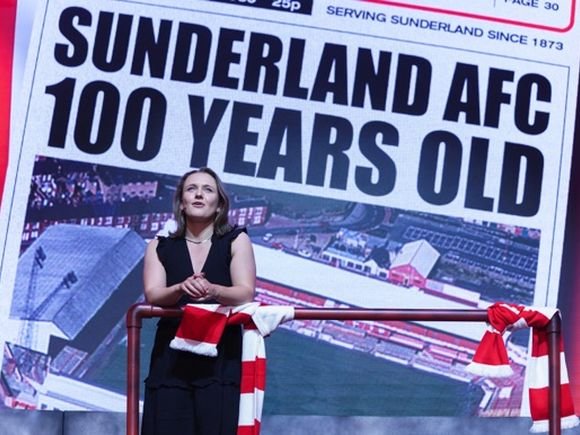
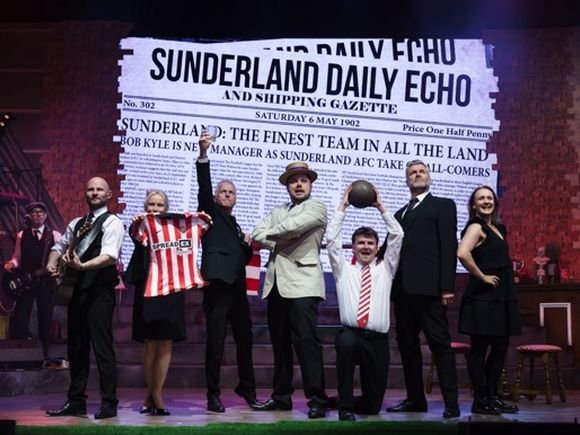
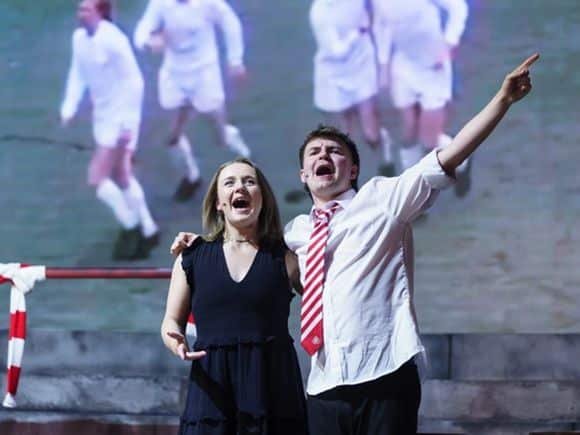
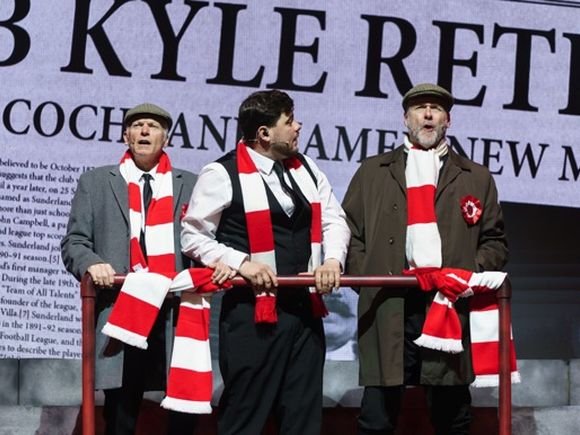
“I’m just really happy for the supporters because, let’s be honest, they’ve been through so much over the years. I just hope they can get the job done at Wembley!”
“I think it was Peter Reid who first suggested that I should write the Sunderland story, because there’s been so many ups and downs, times of economic hardship, times of unemployment with the closures of the mines and the shipbuilding, and as I read the history of the club, I realised how fantastic the story is.”
Liverpool-born Nicky has written similar works, including the excellent One Night in Istanbul and stories about Celtic, but he wanted a show exclusively for Sunderland and its Empire which studied the history of the club.
Expertly guided by SAFC historian Rob Mason, the story takes in the rise and collapse of Wearside industries. Nicky tinkered with his original script to make local references that resonate with new audiences, and those returning for a second look. The inclusion of ‘pink slices’, ‘Jackie White’s’ and Vaux Brewery even stretched into the pre- and post-match hospitality.




Nicky watched Tuesday’s play-off near the Stadium of Light with his Mackem mate, Dave. “I had a ticket and I was supposed to go. I ended up watching it in the pub because I didn’t want to deny a true Sunderland supporter the chance to be there.”
After a brief visit to Vesta Tilley’s, the pair took in Sunderland’s tense play-off semi-final against Coventry at Chester’s before settling into The Three Stories for that unforgettable dénouement.
And when Ballard’s 123rd minute header sent Sunderland to Wembley, Nicky Allt penned a new twist to his Sunderland Story, right there and there.
It wasn’t the only addition on opening night as the Mackem Musical, which tells the history of Sunderland AFC, returned for a fortnight-long second run following its successful sell-out shows two years ago.
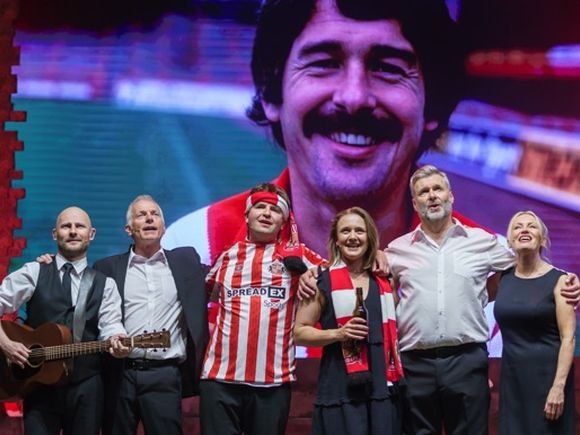
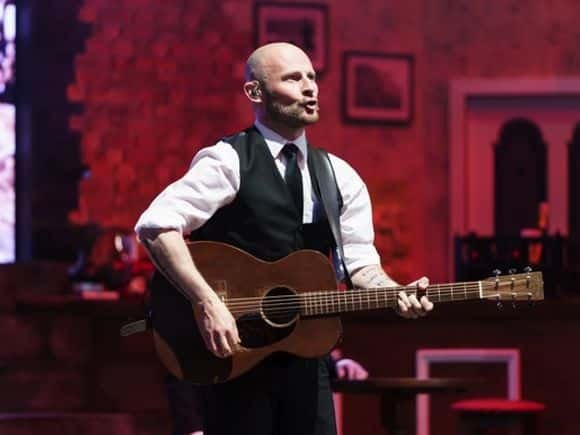
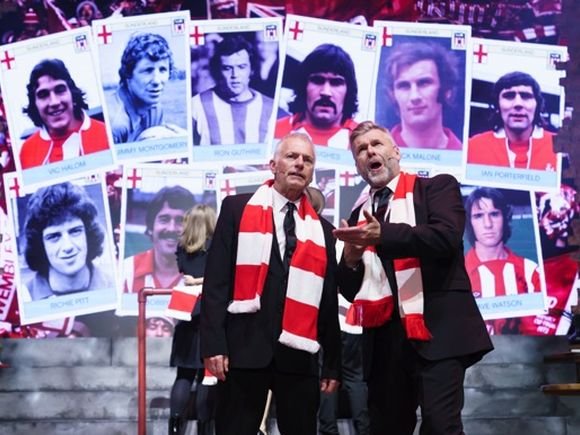
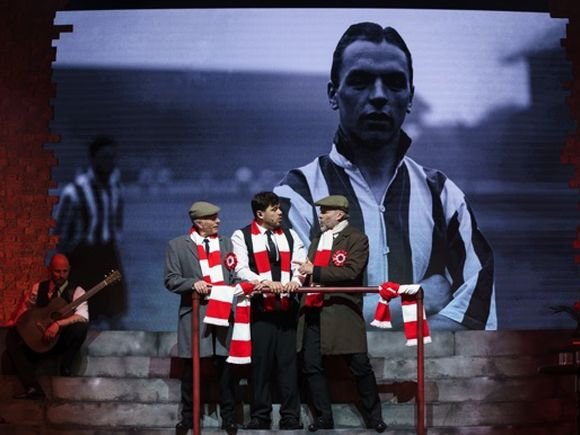
Members from the 1973 FA Cup-winning team – Jimmy Montgomery, Richie Pitt, Dick Malone and Micky Horswill – took the stage, twice, along with popular player and pundit Gary Bennett, and the daughter of the team’s legendary manager Bob Stokoe, Karen.
There was even a reference to George Forster, the 99-year-old former Sunderland Supporters’ Association chairman, still attending matches, theatre performances and possibly even Wembley.
Other legends, Len Shackleton, Charlie Hurley, Kevin Ball, Niall Quinn and brave mascot Bradley Lowery, were projected onto the big screen as rousing renditions of club anthems, Sunderland ’Til I Die and Wise Men Say, filled the venerable hall thanks to the five-piece band.
There wasn’t a single member of the Empire audience who did not want Sunderland to beat Sheffield United and make their long-awaited return to the promised land of the Premier League.
And if there was, they were keeping it quiet.
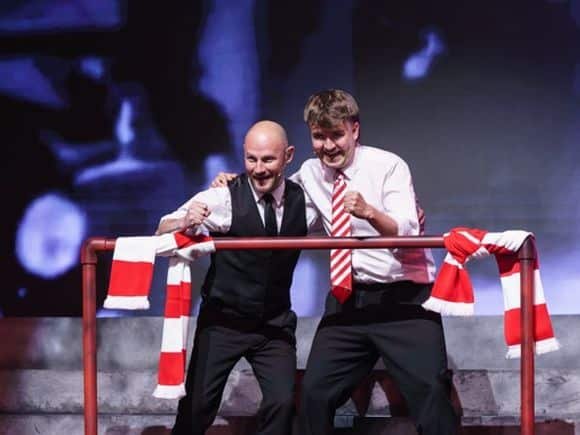

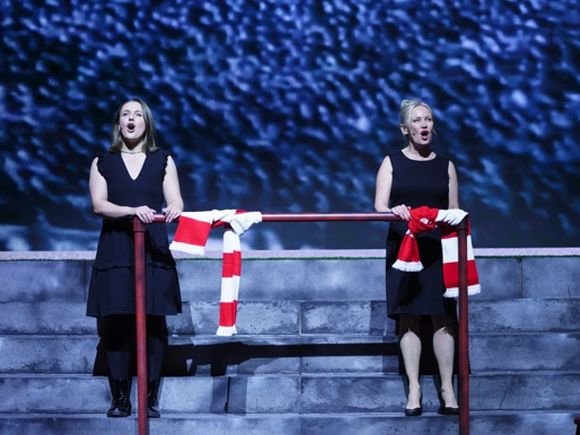
The updated play, featuring a local cast who’d auditioned at the Stadium of Light, takes supporters on a journey from the club’s foundation by local schoolteacher James Allan, its original blue shirts and the funeral of the Carter family patriarch. Once called ‘The Team of All the Talents’, Sunderland won silverware galore and once beat local rivals Newcastle 9-1, the first of many jokes at Geordies’ expense.
“At the turn of the century they were probably the biggest club in the world, English League champions, but when we get to 1973, when they were the underdogs in the FA Cup final against Leeds, that was unbelievable for every kid that saw it at the time.
“As time has gone on since we first performed here, we realised we wanted to include more and more about the city. We noticed that people were just as entwined and loved the stuff about themselves and the town, as they about the team.”
“As much as the story is about Sunderland AFC, it’s more about the people where they live.”
“This is a close city, like Liverpool was years ago. Now it’s become a bit of a world club and changed a fair amount. I think it was Niall Quinn who said you don’t see other teams’ kits on the streets here, just Sunderland shirts, which is what I love about it.”
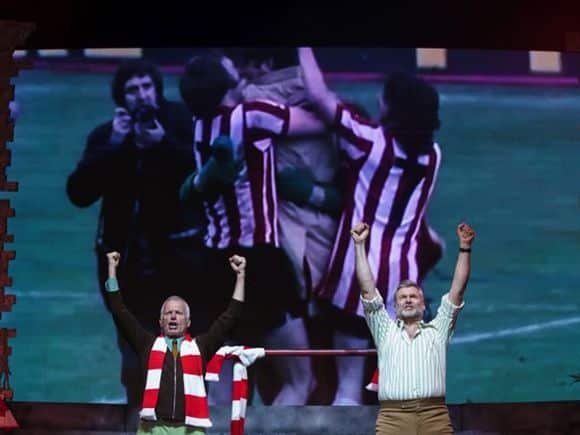
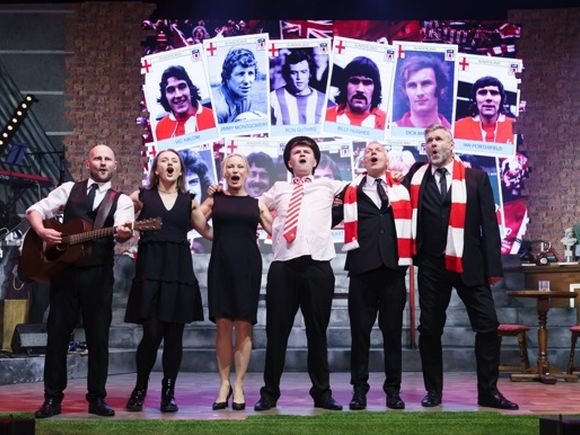

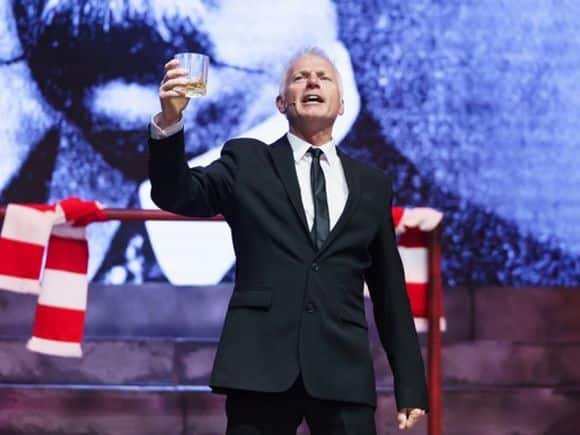
An adopted Sunderland fan himself, Nicky gives plenty of opportunity for his fellow supporters to laugh at themselves, with references to Jack Rodwell, the Mick McCarthy and Roy Keane bust-up, and Michael Gray’s dreadful penalty kick.
There’s real tragedy, too, a memorial to legends who have passed, particularly young cancer victim Bradley Lowery, a poignant moment in the 90-plus minute performance.
As the screen projects memorable goals, performances and players, every moment is still cheered as if it’s live, and by the time Quinny, Bally and Superkev take the spotlight, the whole place is on its feet singing songs.
“There’s quite a pressure when you’re writing something so close and local. I said to the producer, Howard Gray, that we have to get this right. Sunderland people will soon realise that this is about them. We didn’t put it on for enough nights last time, which is why we wanted to bring it back – and do it even better.”
The Sunderland Story, Sunderland Empire Theatre, 4-5 High Street W, Sunderland SR1 3EX. Saturday, May 17, 24 & 31, 2.30pm & 7.30pm; May 20-23, 27-30 7.30pm. Tickets here.


